


A Thomist answer and a preliminary evangelical critique.
.jpg)
The Roman Catholic sacramental system, infused with causal efficacy, turns out to be a mirror of pagan systems of rites of passage associated with birth, adolescence, marriage and death, says the Parisian theologian.
.jpg)
From an evangelical standpoint, his problem is not in the details or some compartments of his thought but in the fabric of his system that is permeated by a thoroughgoing optimism in human capabilities.
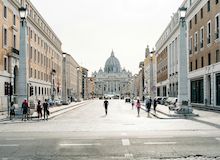
Ultimately, we must ask if we are prepared to review our traditions in light of Scripture as our ultimate authority and be willing to change accordingly.
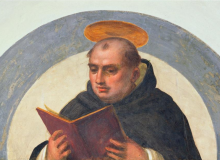
This is to regard Thomas as an indispensable interlocutor in the history of Christian thought to be read critically and generously in light of the principle of “sola Scriptura”.
.jpg)
The challenges of secularisation, disengagement, and abandonment of religious practice are putting increasing pressure on the Roman Catholic Church right here in the eternal city. Rome is still religious in its “hardware” but less and less so in its “software”.
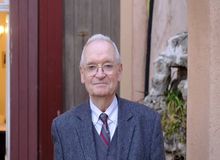
Blocher dissects the internal structure of Catholic ecclesiology and tries to grasp the connections that legitimize Rome’s high view of itself and its inflated prerogatives.
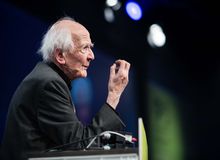
Bauman’s attraction to Pope Francis shows how disillusioned post-Marxist intellectuals find in Pope Francis a figure who instills hope in the general dullness.
Cropped(1).jpg)
With a "declaration" of high hierarchical value, Roman Catholicism is now officially in favor of blessing gay unions, as are many liberal Protestant churches around the world.
.jpg)
The new official document “broadens its classical understanding” to “include” new kinds of couples while maintaining “the perennial teaching on marriage”.
.jpg)
According to Francis, theology must be “fundamentally contextual” and no longer start from “first principles.” It must translate into a “culture of dialogue” with all and no longer think of itself as only lecturing to the world, religions, and others.
.jpg)
Once you pray with someone in public, you are conveying that all the participants share the same Christian faith and are “brothers and sisters” in Christ.
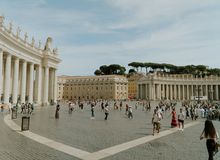
Francis thinks of his pontificate as a “pastoral” attempt at building bridges instead of creating walls with the whole world, leaving doctrinal issues aside.
.jpg)
There is a risk the whole conversation may become a sterile exercise when two or more experts talk to one another, losing the gospel focus healthy theology must always have.
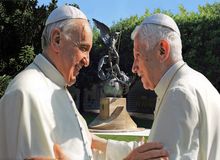
Benedict XVI died at the end of 2022, but on July 1st, his shadow receded further from the Vatican.
.jpg)
“Rapito” was presented at the 2023 Cannes Festival. It tells the true story of Edgardo Mortara, a Jewish boy from Bologna, who was kidnapped from his family in 1858 and taken to a Catholic boarding school by order of the Inquisition court.
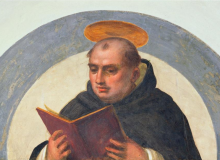
Reading him critically and generously in light of the Scripture Alone principle, seems to be the best evangelical approach to Thomas Aquinas.
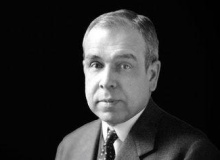
J. Gresham Machen wrote his book Christianity and Liberalism exactly a century ago.
.jpg)
For the President of the Pontifical Council for Christian Unity, the motivations that gave rise to the Protestant Reformation were met and are no longer tenable outside of the Roman Catholic Church.
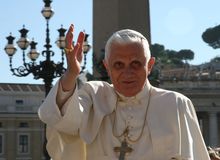
Ratzinger was concerned that Luther’s interpretation of the Christian ministry as mainly characterized by preaching, prayer, and pastoral care ware becoming widespread in Catholic circles.
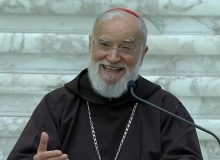
In a nutshell, according to the cardinal, all human beings will be saved by Christ, with or without faith in Christ.
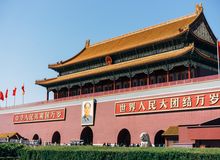
The agreement on the appointment of bishops will be extended two years. “The price to be paid is immense because the Catholic Church renounces to its independence”.
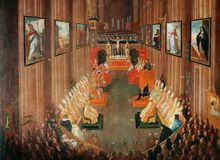
The first results of the “synodal process” in European dioceses are attacks on the Tridentine paradigm.
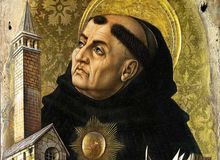
In recent years, we have witnessed a growing fascination with Thomas Aquinas and Thomism by evangelical theologians.
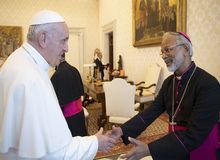
The history of the Roman Catholic conclaves indicates that electoral majorities do not predictably follow in the way they were formed, but can be constructed in an unexpected way.

Las opiniones vertidas por nuestros colaboradores se realizan a nivel personal, pudiendo coincidir o no con la postura de la dirección de Protestante Digital.